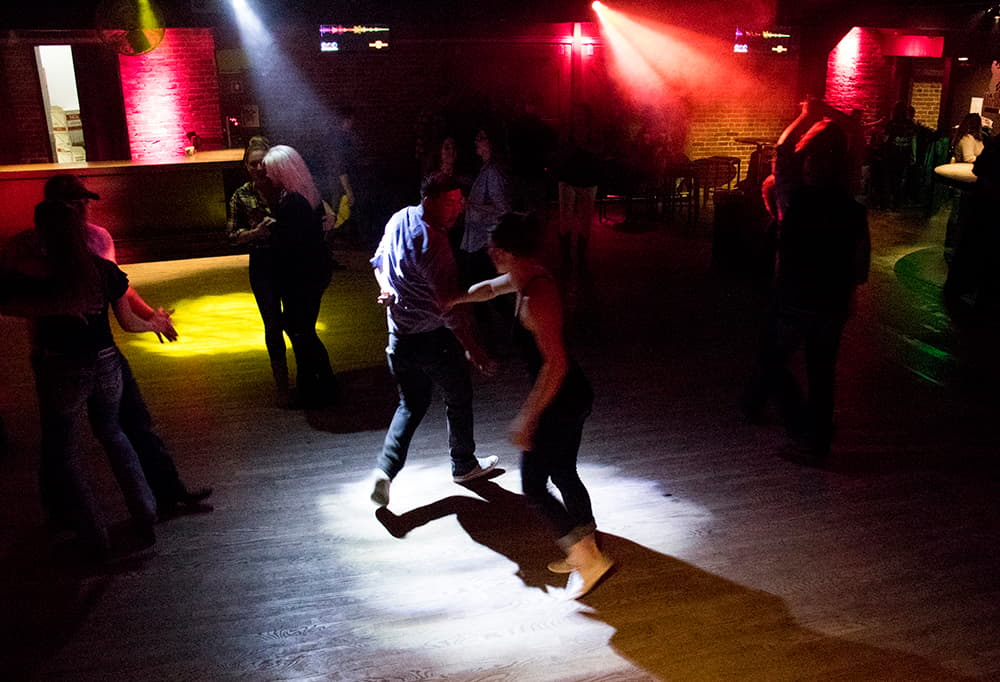
"I walked around the sad honkytonks of Curtis Street; young kids in jeans and red shirts; peanut shells, movie marquees, shooting parlors. Beyond the glittering street was darkness, and beyond the darkness the West. I had to go." — Jack Kerouac, "On the Road"
The honkytonks on Curtis Street are gone. They're farther behind Denver than the days when residents cared that Kerouac wrote about the city.
As more residents flocked to the area and the city pushed past its rural roots, many country bars faded away. Others adapted to their new more urban environment.
Denver Western bar operators, artists and fans say the area's love of country music is still alive and well — it just looks different than the industry's heyday.
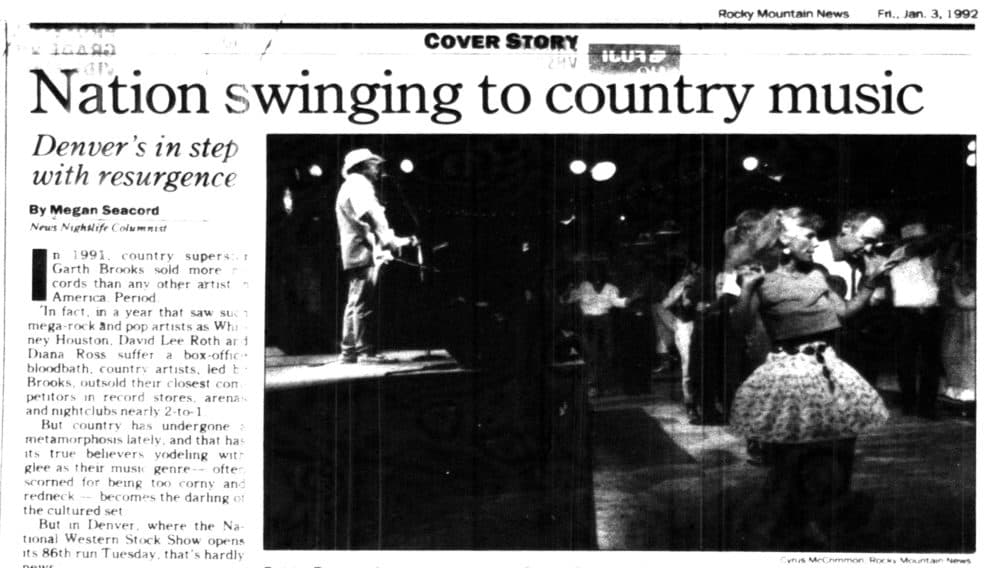
The Tavern Hospitality Group runs the last country joint in downtown Denver. The Denver-based company purchased Cowboy Lounge at 1941 Market St. in 2007 after the venue was converted from the ill-fated hip-hop bar Market 41.
Cowboy Lounge tries to make the boot wearers feel just as comfortable as those in sneakers, according to Helen Wood, director of marketing for Tavern Hospitality Group.
"We think it's important not to forget what Denver used to be," Wood said, "but at the same time we want to keep it relevant by offering a mix of both country and rock."
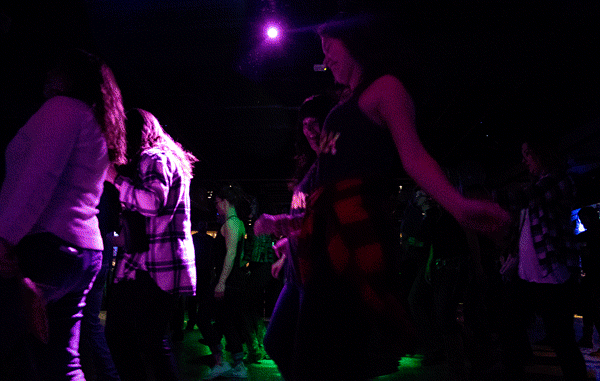
The Cowboy Lounge says it's doing well and weekends are consistently busy. Other country bars in and around Denver have not been so fortunate.
In 2015, Denver lost Toby Keith’s I Love This Bar and Grill after the Phoenix-based country-themed chain folded. The bar lasted for about five years at The Shops at Northfield Stapleton.
The Electric Cowboy, about 10 miles west of Lower Downtown, offered a similar playlist to the Cowboy Lounge, playing hip-hop, rock and country to draw those in and around Westminster. After about eight years, the Electric Cowboy shut its doors for the final time in 2015.
"They were, in fact, not shut down, and their liquor license was never revoked due to violations. In fact, we don't show a history of any violations at all," said Westminster City Clerk Michelle Parker.
"We seem to remember in our collective memory that it was simply being closed down due to a lack of business," Parker added.
A call to the owner of the Electric Cowboy was not returned. Neither were multiple calls and emails to the Grizzly Rose.
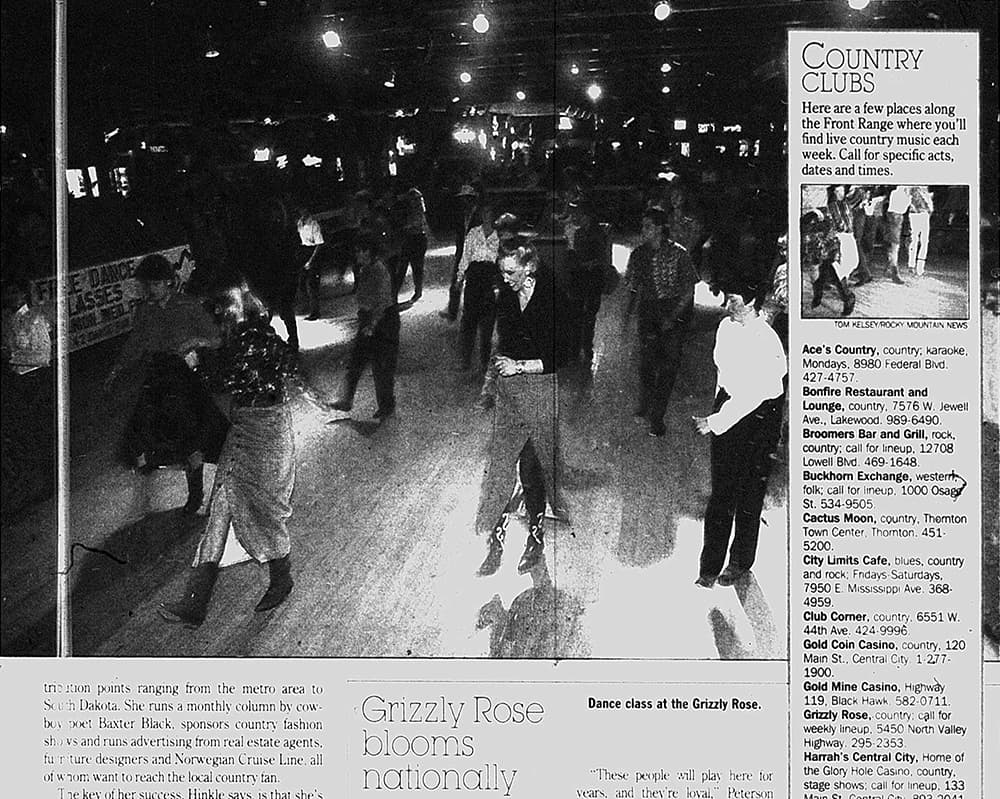
You cannot talk about country music in Denver without talking about the Grizzly Rose, said Arvada resident Cassie Gibbs.
Gibbs can be spotted riding one of the Grizzly's two bulls and dancing in the music video for Buckstein's "The Grizzly Rose." She said she's been going to the bar since she was 14 which is plausible because the spot near the Interstate 25 and Interstate 70 junction is open to all ages on Sundays.
"Grizzly Rose is as authentic as you're going to get in this area," Gibbs said. "The only thing that's maybe more authentic is a bar in some small town in the middle of nowhere."
Grizzly Rose opened in 1990. The bar features weekly bands and concerts for rising stars like Midland, Brett Young, Cassadee Pope. It also draws in former favorites like Tracy Byrd and John Michael Montgomery.
While others closed, The Grizzly lasted along with the Stampede in Aurora, Lulu's Inn in Watkins, The Little Bear in Evergreen, Buffalo Rose Saloon in Golden and Bonfire Tavern in Lakewood.
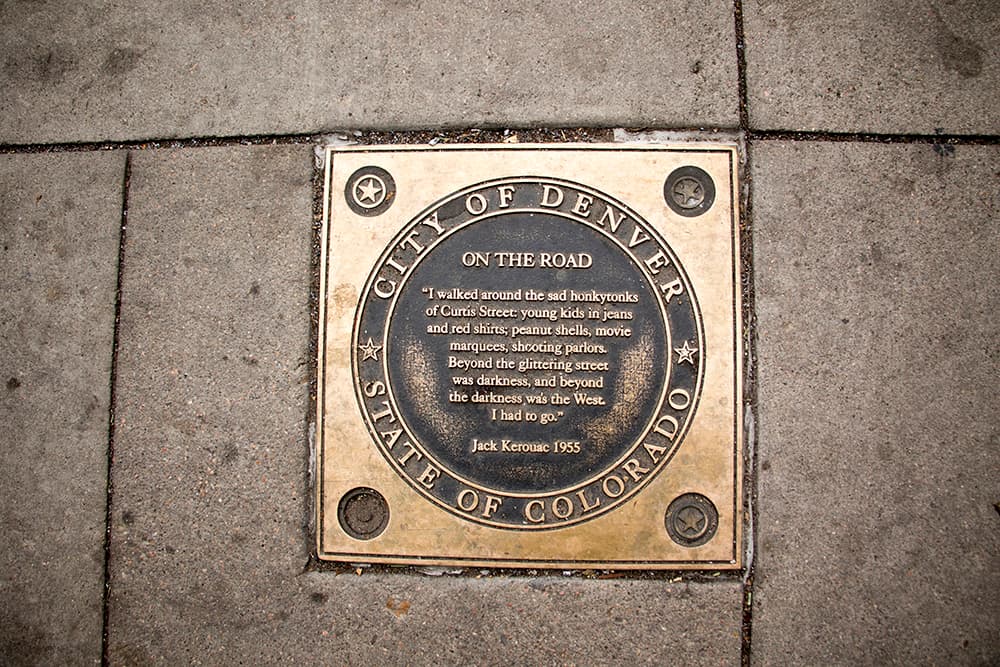
Denver has deep ties to the country music industry. During the 1930s, Hollywood influenced the Mile High's country music scene with its many western movies. Cowboy actors Roy Rogers and Gene Autry brought to "the American West an audience that was fast becoming urbanized," the Rocky Mountain News reported almost 26 years ago.
At the time of the article, KYGO was reported to be "the top-rated station year after year." Billy Ray Cyrus, Garth Brooks, Clint Black and Mary Chapin Carpenter were busting out hits.
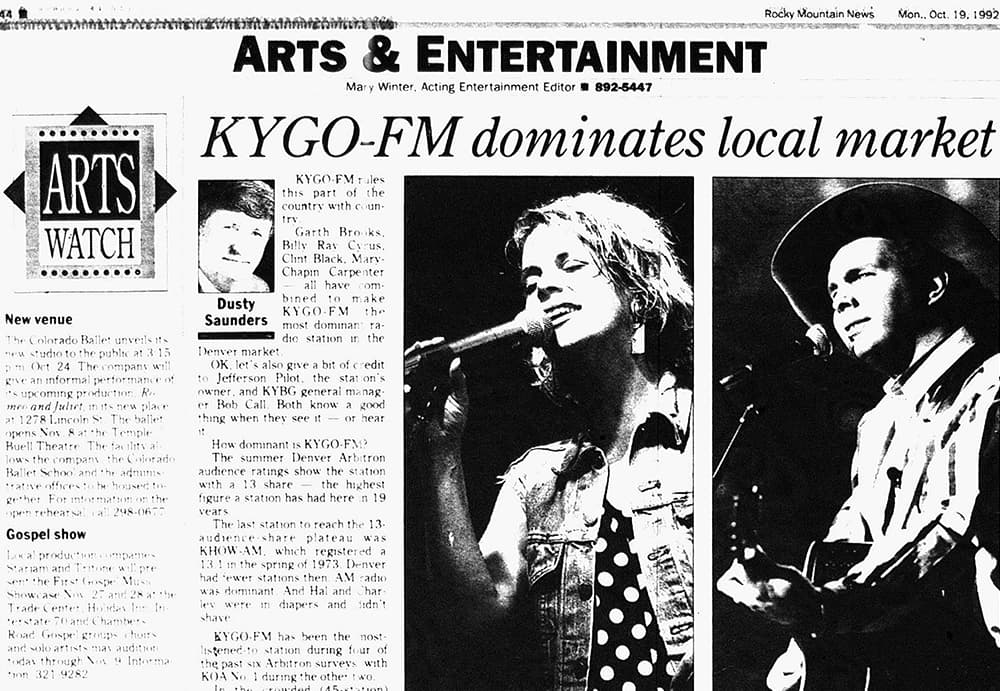
As of December 2017, the country radio station was in the No. 2 spot in the Denver-Boulder market, according to Nielsen.
Jim Hyatt lived through country music's fall in Denver. The leader of the Jim Hyatt Band and 2008 inductee into the Colorado Country Music Hall of Fame organizes The Rocky Mountain Jamboree. The monthly country music shows at Windsor Gardens call back to the KLAK radio program that went over airwaves in the late 1950s and early 1960s.
"I got here in Denver in about '83. At that time, country music was going crazy. About every place had bands. A lot of places had house bands," Hyatt said.
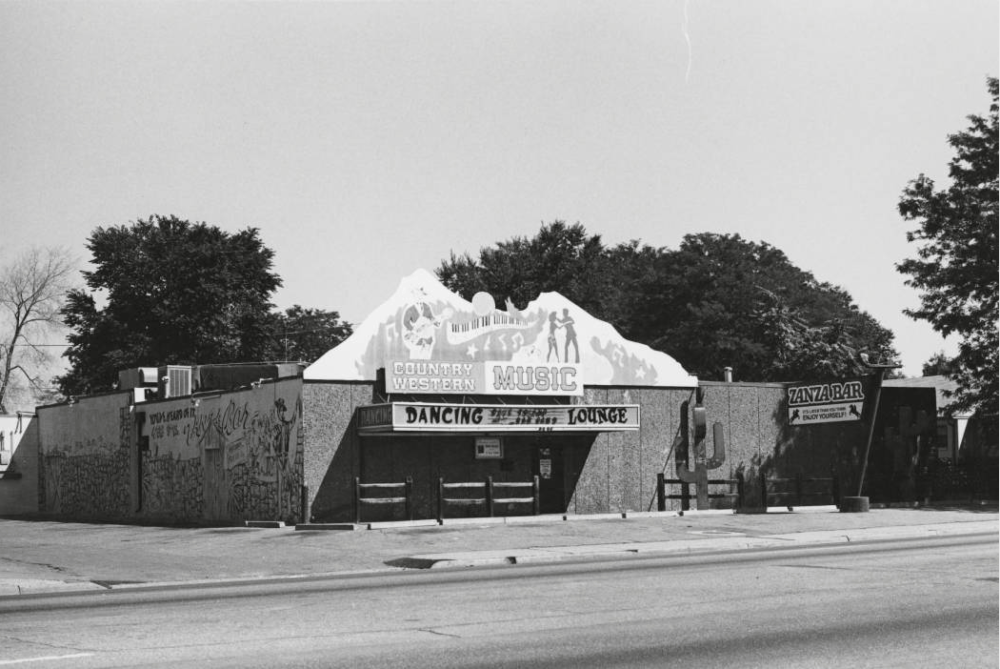
Hyatt watched Ace’s Country take over the bar near the southeast corner of West 90th Avenue and Federal Boulevard and later close in the oughts. Countryland in Commerce City also changed hands. Similar fates were in store for other venues including Urban Cowgirl Saloon in Arvada, Cactus Moon bar in the Thornton and Zanza Bar — featured in the 1978 Clint Eastwood ape film "Every Which Way but Loose" — in Aurora.
Country music's popularity dipped from its heyday and baby boomers stopped going out as much, which together spelled disaster for the local country music scene. As the boomers continue to step away from the bars, country music's presence will likely further decline, Hyatt said.
"But there was probably somebody 40 years ago my age that was saying the same thing about country music," Hyatt said. "Country music seems to survive. It's music of the man."
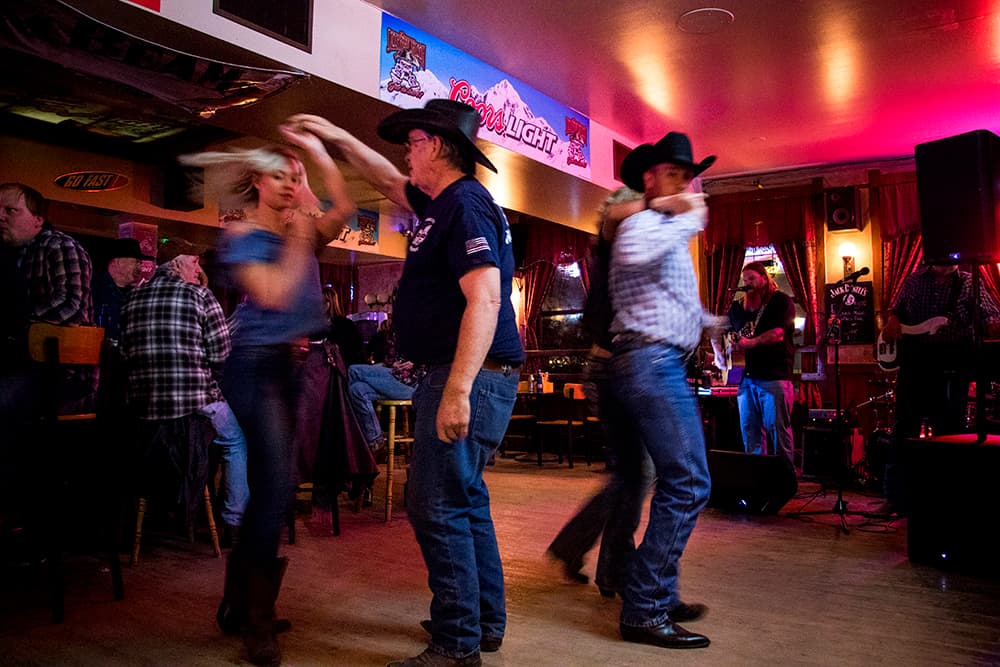
You'd probably have no doubts about the country music scene in Denver if you walked into the Stockyard Inn and Saloon during the National Western Stock Show in January. The former Old West Tavern sits in a building on the National Western Complex that was completed in 1919. And every night of the stock show, Jan. 6-21 this year, there's a live country band booked.
During the stock show, Stockyard Inn is a cowboy bar. The rest of the time it's a lunch spot open Monday through Friday, said Dean Maus, owner of the saloon.
There's been some uncertainty about whether the Stockyard Inn and Saloon would be able to stay at its longtime home in north Denver. The city and county of Denver is looking to buy the land where the bar sits as part of its redevelopment of the complex. Denver anticipates knowing more about whether the Stock Yard Inn and Saloon will be able to stay a part of Denver's country music scene in coming months as negotiations to buy the land progress.
City officials desire to keep the Stockyard Inn and Saloon isn't the only positive sign for Denver's country music scene. The Bull just took over 106.7 KWBL FM, replacing the rock and roll station KBPI. The new iHeartMedia Denver station plans to go head to head with KYGO.
Plus, big names still bring crowds. Garth Brooks had enough demand to put on an impressive nine shows at the Pepsi Center in 2015. Top grossing artists including Jason Aldean, Kenney Chesney and Florida Georgia Line scheduled stops in Denver in 2017.
"There's a big concert market here, and that's really where the industry is going. People are not buying records. ... They're buying seats," said Denver country artist Richie Law.
Law was featured on the 2011 season of "American Idol" and plays in bars across the state. He's hoping that there are more opportunities for regional and local acts to play. Some places like McCarthy's Sports Bar & Grill in Aurora and The Tailgate Tavern in Parker are booking country acts, he said.
"Colorado is really in this purgatory, switching from live, big show to building up local bands," Law said. "It's not that there isn't a lot of country fans here. It's that there isn't a lot of places for them to go."
Business & data reporter Adrian D. Garcia can be reached via email at [email protected] or twitter.com/adriandgarcia.
Subscribe to Denverite’s newsletter here bit.ly/DailyDenverite.













